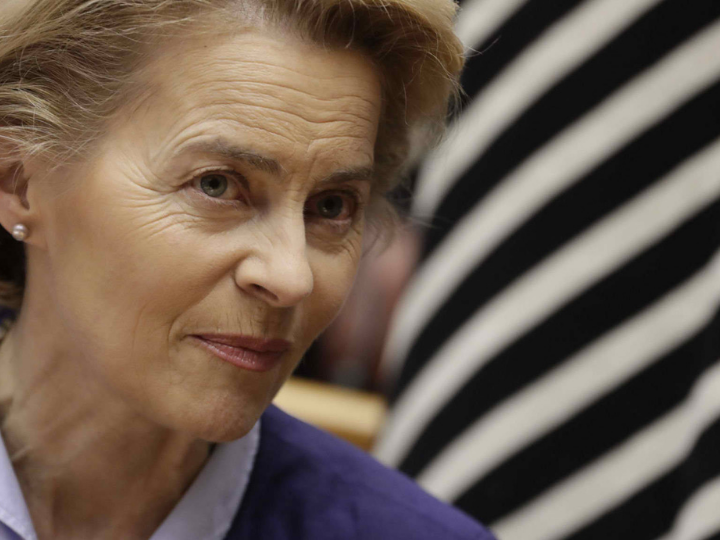by Benjamin Fox
European Commission President Ursula von der Leyen has insisted that the EU would not reopen the controversial Northern Ireland protocol, a key part of the Brexit agreement with the UK, just a day after Boris Johnson’s published a paper setting out its plans to renegotiate it.
“The EU will continue to be creative and flexible within the protocol framework. But we will not renegotiate,” said von der Leyen on Thursday (22 July) after a call with Johnson.
The comments come the day after Brexit minister David Frost set out a command paper which the UK hopes will form the basis of reopening parts of the protocol.
The document, which was one of the most hard fought parts of the Brexit negotiations, effectively creates a customs border between Britain and Northern Ireland in order to avoid a hard border with the Republic of Ireland.
“The prime minister set out that the way the protocol was currently operating was unsustainable. Solutions could not be found through the existing mechanisms of the protocol. That was why we had set out proposals for significant changes to it,” was the official readout issued by a UK government spokesperson.
“There is a huge opportunity to find reasonable, practical solutions to the difficulties facing people and businesses in Northern Ireland, and thereby to put the relationship between the UK and the EU on a better footing,” added the UK spokesperson, a reference to the bumpy start, both diplomatically and politically, to post–Brexit relations.
Despite increasingly belligerent language from Frost and other UK ministers about renegotiating the protocol in recent weeks, UK officials have privately played down the idea that London simply wants to reopen the protocol. Instead, officials say that they want to negotiate more sustainable implementation of the protocol that will reduce disruption for businesses and citizens in Northern Ireland.
They have also pointed to unhappiness among the pro–British Unionist community in Northern Ireland, which has seen three changes in leadership in the Democratic Unionist party, the province’s largest party, this year. The perception among Unionists is that protecting the EU’s single market and north/south relations in Ireland are trumping minimising disruption to Northern Ireland and its relationship with Britain, say London officials.
The UK paper also proposes to remove the European Court of Justice from having any oversight role in relation to the protocol.
For the moment, the UK has chosen not to invoke Article 16 in the protocol, which allows either side to suspend parts of the agreement in the event of emergency, and officials maintain that the Johnson government wants to find a consensual agreement. However, they concede that all options, including Article 16, remain on the table.
However, with low trust in the Johnson government prevailing among EU officials and national diplomats who say that the UK has repeatedly broken its word throughout the negotiating process, there is little appetite to offer any new concessions to London on an agreement which Johnson signed in 2019, and which was debated and ratified by UK lawmakers.
TheUK claims that it did not expect the EU to implement the new customs regime so rigidly have prompted retorts from EU officials that, over four years after voting to leave the bloc, the UK had plenty of time to prepare for life outside the single market.
“Is it too much to expect the [UK] to stand by what it has negotiated, signed and ratified,” German government spokesperson Sebastian Fischer tweeted in response.
*first published in: www.euractiv.com




 By: N. Peter Kramer
By: N. Peter Kramer

